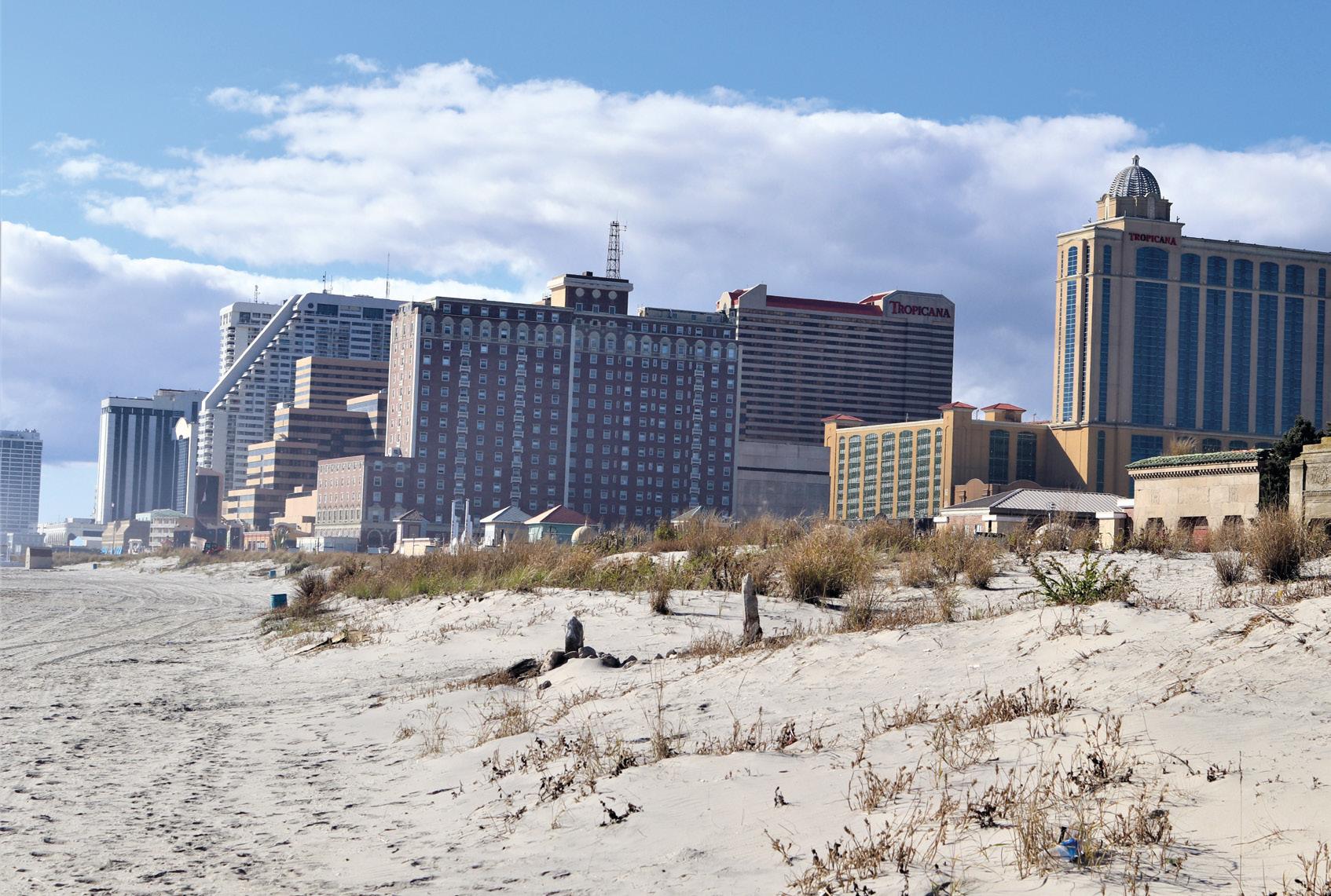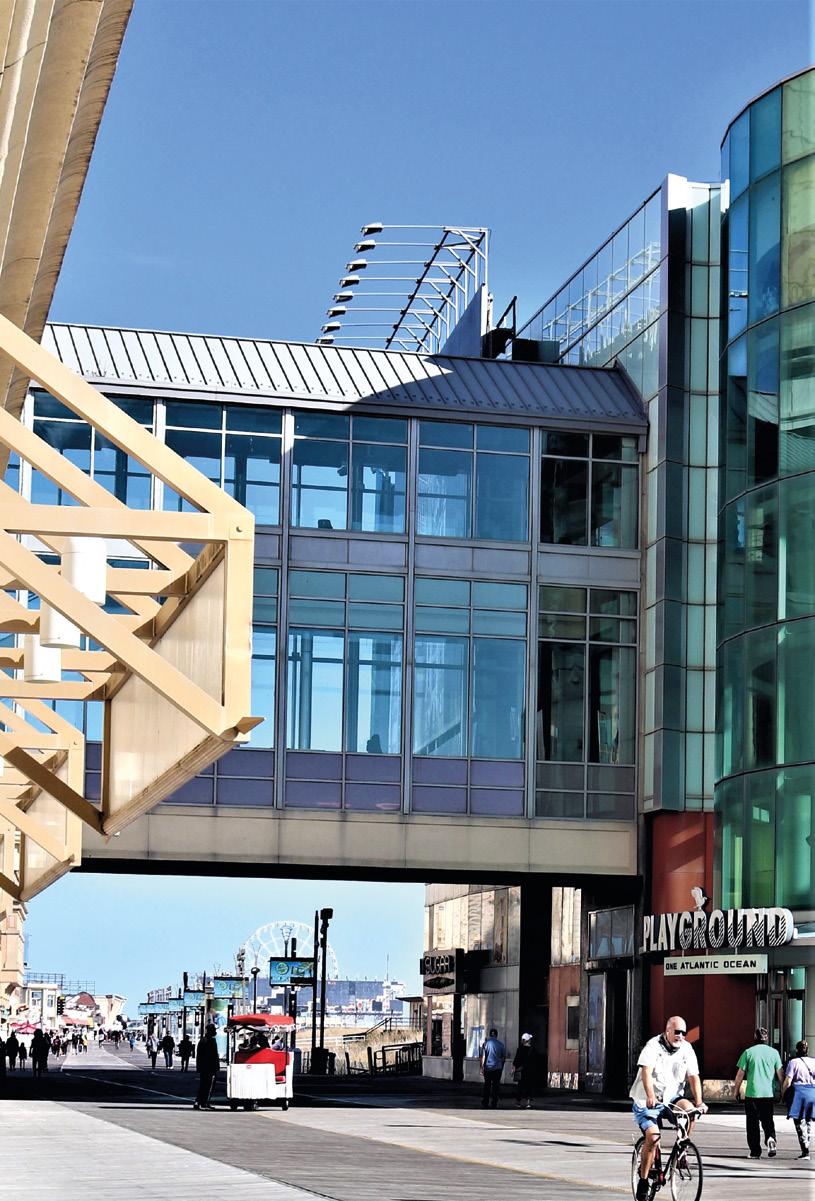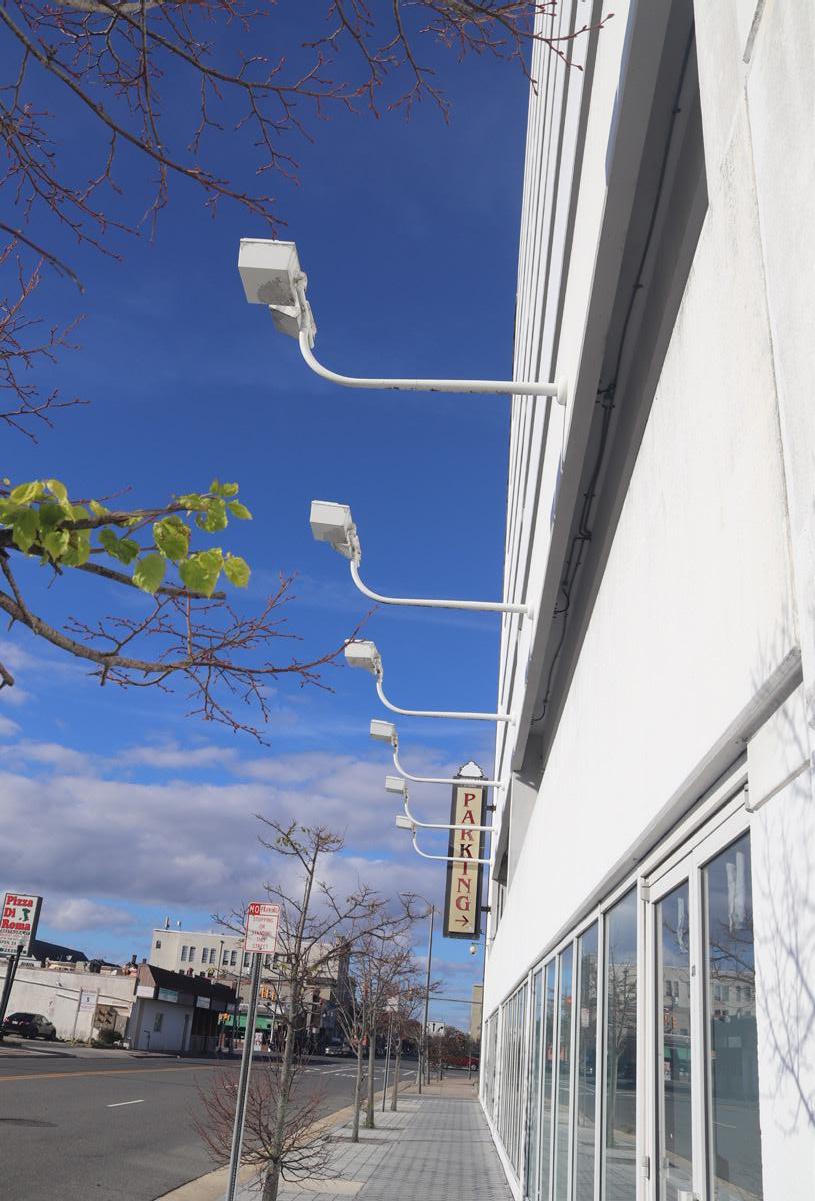
9 minute read
Covid-19. The Hospitality Industry Adapts
Navigating Compliance Mandates, While Maintaining Consistent Guest Service
have always said that adapting to a crisis I is built into the core of the hospitality industry. Hospitality is about employees serving guests within an environment that is fluid, and in that environment “life,” happens. My years in the hospitality industry, (the bulk spent in Atlantic City) have taught me that things don’t always go according to plan!
All sectors of the hospitality industry are operated within a formula of fundamental business applications to achieve an operational balance, themed in “dedication to guest service.” It is not defined by masked employees, speaking to guests from a distance and wiping everything the guest touches. The human interaction, the warm smile, friendly greeting and pleasant exchange is the industries presentation. The pandemic has struck at the very basic operation of the industry.
The hospitality industry’s numerous brands have been the public’s “third place;” whether it’s dining, entertainment, retail, lodging or gambling. In Ray Oldenburg’s 1989 book, The Great Good Place he expanded on this premise, defining the “third place” as places where people gather, putting aside their concerns of home and work to enjoy an experience.
The Covid-19 virus has limited access to many of our third places and struck at the markers that make up our social core. We have lost the opportunity to sit at a café or dine with companions at a restaurant. Our travel has been restricted, leaving us with only memories of places we have been. Simply stated, the casino floor is just so different now. Collectively
we now conduct business, education and social time using our computer as a portal.
Many times, new business models are created out of circumstances. At the onset of the pandemic, industry members found ways to adapt to new regulatory operational parameters with restrictions. It was, at best, education on the run! Within hours of property shutdowns, plans were developed to improve the resorts’ operating floor models, promoting distance and sanitization for all customer touch points. Investments were made into healthier air quality. And technology was about to play an increased role in service delivery from digital restaurant menus, keyless hotel-room entry to a cashless casino floor. In many ways the industry was already heading in these directions pre-pandemic. What we are seeing is a more rapid deployment and placement of the technologies because of it.
On the cashless topic, there are a few casinos in Nevada and scattered Tribal properties that offer the cashless/digital platform. Coronavirus can survive on paper. And in many ways the casino industry is late in the game compared to other industries for the cashless conversion. Obviously this is a regulatory issue for each jurisdiction in the U.S. An 18-month study was completed this year by industry members. And the American Gaming Association has also been championing the plan for casino digital payment platforms as well: https://www.americangaming.
org/wp-content/uploads/2020/06/AGA_Payment_ Choice.pdf
The fall weather here in the northeastern portion of the U.S can be as unpredictable as the roll of the dice. Despite some great, even warm fall weather until December this year, visitation to Atlantic City was down. Additionally, the state changed the dining mandate for all dining to close at 10 p.m.
I spent some time in Atlantic City recently on a sundrenched fall day and found the Boardwalk a quiet place to be. It was mid-week and I did not expect to find many customers engaged in gambling activity anyway. At one of the casino properties I visited, entering from the Boardwalk side, I was met by a security guard that asked me to read the large sign next to him. Basically, it asked some general questions about my health. There are some properties that also check your temperature. All that is very good but not as effective as what is actually taking place in applied safety protocols around the properties. Casinos promote distance with every other slot machine powered off and plexiglass around tables, and of course the only live events anywhere take place with the human foot traffic outside of the buildings.
Personally, I have witnessed first-hand Atlantic City’s good and bad times. The Atlantic City hospitality industry has seen decades of its complex infrastructure tested. With each economic downturn or business interruption its hospitality workforce has maintained a certain resilience. This time Covid-19, has impacted the industry with a major loss of jobs and benefits worldwide. The impact has spread throughout the industry supply chain to other business sectors and into the local communities.
As the industry continues to deal with the pandemic’s collateral damage to its various operations, experts are predicting a 12-24-month into 2023 recovery at best. Many of the safety protocols and operational modifications to the industry’s infrastructure won’t stop when the pandemic ends.
As of this writing, we are still at pre-vaccine release here in the U.S. And there is a difference between states based on Covid-19 ‘hot spots,’ on the depth of restrictions on hospitality venues. Some have open dining with distance while others have given specific time frames for operation or completely shutdown.
In New Jersey the gaming operations in Atalntic City must cease all dining at 10 p.m. Those hotel guests may need to brown bag it! Just a 50-minute ride to Philadelphia and you will find the only casino in the city proper (Rivers) completely closed because of the tightening of restrictions in the city. (I should note that the Philly “Live” hotel-casino grand opening date has been pushed back to 2021.) Yet a short drive of less than 15 minutes to the next county in three separate directions and it’s all the gambling you want with fewer dining restrictions.
Early in the pandemic, as we were all finding our way, my commentary in Casino Life in early spring stated that I saw the third quarter of 2020 as transitional for the casino/hospitality industry in Atalntic City in part thanks to the summer beach environment. Also, a positive fourth quarter would be something to aspire to, knowing it would probably be more of a continued bleed-out wound; with only minimal signs of healing. I wasn’t far off the mark, influenced by the state mandates continually changing for operations of dinning and customer capacity.
Sports betting and online gambling for the nine New
Jersey casino properties have provided a positive cash flow against the backdrop of the mandated capacity limits for the brick-and-mortar Atalntic City casinos. This is the same for all U.S casino jurisdictions that permit online gambling to take place. And those jurisdictions that do not have online gambling are considering it. Online gambling has seen continued growth in New Jersey since its legalization in 2013.
The Atlantic City casinos were closed for 107 days in the beginning of the pandemic. They didn’t reopen until mid-July, losing part of the summer business. Luckily through October we experienced good weather. The online gaming revenue alone in N.J increased 106 percent year over year in October to $93.45 million. Sports betting was a record-setting $803 million. This against a backdrop of 8 percent decline from the brick-and-mortar same month last year. Slots were down more than tables but it’s feared the worst is yet to come based on the upcoming winter months. Job eliminations and reduced working hours are becoming the norm.
Thankfully, the integrated resort experience through the years has grown in product diversification. Today’s resort model is a variety of property amenities. Separately, they each offer an experience, coming together now as a collective brand, they are all trying to survive. They meet the challenge, with safety protocols, for dining, entertainment, retail, lodging or gaming.
However, the caveat here is that without guest traffic from casino visits on property, non-gaming amenities are in the negative. So, diversification is good but without customers on property nothing helps.
Recovery for the industry will be a slow, coordinated effort. That means a need for state (regulators), city officials, industry suppliers, properties and academic institutions working together. The academic role will be paramount in terms of providing even more strategic research and focused employee/student educational programs assisting the industry in terms of “bestpractice” methods and solutions to aid recovery.
Data collection will be key. Research will be very important to Identify any new patterns of customer behaviors. It will be important to compare pre- and post-pandemic visitation. Has frequency of customer visits changed? Has their time on device lessened post-pandemic?
Direct communication with customers should be ongoing along with welcome-back offers. Allow the analysis time to show patterns of behavior. Remember it is about consistency of behavioral activity on property, not necessarily the peaks and valleys. This is where critical data-driven analysis must take place to produce the beneficial marketing programs to return business consistency. As I stated before, a re-analysis of customer tracking based on new live data will guide the future marketing programs.
Established safety protocols have become mainstream and will be with us in one form or another in some cases permanently. So, what does that all mean? On the safety side, will most customers want

to unlearn the safety protocols they feel comfortable with? Should they have to?
One of the keys is reestablishing consumer confidence to physically visit. Stakeholders must promote their operational-safety protocols in full transparency perhaps in the form of newsletters or mass emailings to customers in their data base and the press, explaining what has been done for their safety. As an example, Delaware North recently reopened their three casinos in New York State. They made a point of demonstrating their enhanced safety protocols directly in the media.
An openness must be conducted in employee education to make employees feel comfortable and to help promote customer awareness as well. I suggest employee meetings and copy them on many of the property-customer communications. They are your front-line employees and building their confidence as we return to business will go a long way in the customer exchange. Although it has been said we are looking at a new normal ahead, we can also say it is an improved normal with upgraded service deliverables and better communication. This will be ongoing education for all.
Some closing thoughts on Atlantic City. Prepandemic Atlantic City was showing some great numbers in terms of its financial re-positioning in the East Coast casino/hospitality market. The city’s ratings were up and the nine properties were becoming more competitive again. In the past couple of years, we have seen more diversity of property ownership. I have said for many years that multiple property ownership is not good for the Atlantic City market. It stifled growth. With the entry of Hard Rock, Ocean Resorts and now the Bally takeover the city is getting part of what is needed for market growth. Competition!
Metaphorically speaking it could be off to the “races” for the nine casinos when the pandemic tide subsides and they line up at the starting gate for their longer-range marketing initiatives to bring back visitation. We may see a different hierarchy in terms of which property leads the city in revenue, perhaps knocking out some of the traditional front runners.
We will see the friendly smiles of hospitality employees again in our chosen “Third Place.”
Bob Ambrose, Consultant, Adjunct Gaming Instructor, former Atlantic City Casino Executive











